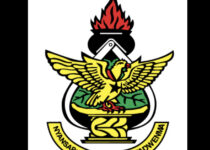KNUST BSc Electrical and Electronics Engineering cut off points for (2023/2024)-see now
KNUST BSc Electrical and Electronics Engineering
Electrical Engineering is the branch of engineering that deals with study of electrical systems, such as electrical power generation and distribution, electronics, control system, and telecommunications. Electrical engineers mainly focus on large scale production and distribution electrical power.
KNUST BSc Electrical and Electronics Engineering is design to provide students with a foundation in electrical engineering principles and concepts. During the course of the program, students will typically study subjects such as circuit analysis, digital logic design, power systems. Students will have opportunity to take part in design projects and other practical activities that help to reinforce their theoretical knowledge.
The aim of the program is to prepare graduates for a career as electrical engineers.
The BSc Degree program present at the Kwame Nkrumah University of Science and Technology is a four-year undergraduate program leading to the BSc Degree in Electrical Engineering.
Graduates of this program will have the knowledge and skills necessary to design and develop electrical systems and equipment, and to apply their knowledge to solve complex engineering problems.
Career and Opportunities
- System engineer
- Electronic communication
- Hardware engineer
- Controls engineer
- Electrical engineer
KNUST BSc Electrical and Electronics Engineering Admission Requirements
Applicants must satisfy the university’s general requirements. To be qualified for admission prospective applicants must have the following requirements.
WASSCE/SSSCE APPLICANTS
Credit passes in core subjects: English Language, Mathematics, Integrated Science. Credit passes in three (3) electives subjects: Chemistry, Physics, Electives Mathematics.
A’ LEVEL APPLICANTS
Five (5) credits at O’ Level including English and Mathematics, plus.
EITHER passes at A’ Level in Pure Mathematics, Applied Mathematics, and Physics with an O’ Level credit in Chemistry.
OR Passes in A’ Level in Mathematics, Physics, Chemistry.
MATURE APPLICANTS
Applicants must be 25 years at the time of summiting application.
EITHER five (5) credits at the O’ Level including: Mathematics, English, Physics, Chemistry.
OR WASSCE/SSSCE credit passes in three (3) core subjects: English Language, Mathematics, Integrated Science. Credit passes in three elective subjects: Physics, Chemistry, Mathematics.
KNUST BSc Electrical and Electronics Engineering cut off points
The Kwame Nkrumah University of Science and Technology latex cut off points for BSc Electrical Engineering is aggregate 07. Applicants are to make sure that their total aggregates in three core subjects and electives subjects sum up to aggregate 07 or better.
Does KNUST Offer Electrical Engineering
Yes, the Kwame Nkrumah University of Science and Technology offer Electrical Engineering courses.
Prospective students who want to read electrical engineering can apply for study admission at the university for the preferred qualification of the programme.
What do electrical engineers do?
Electrical engineers design and develop electrical systems that are used in various applications. They use computer aided design software to develop schematics and blueprints of electrical systems. Also conduct research to identify new technologies and methods that can be used in electrical engineering.
Is there math in electrical engineering?
Mathematics is essential to do electrical at university. Many universities will also ask candidates to have done further or advanced mathematics. In addition, universities will want you done physics or chemistry or a technology subject.
What do people go on to do?
Typical employers for electrical engineers are consultancies, telecommunication, manufacturing, computing, construction, transport and utilities companies. As computer and mobile technology is developing, they become the main areas where more electrical engineers wanted.
How many years is electrical engineering?
Electrical engineering is typically a four-year undergraduate degree program leading to the degree in BSc Electrical Engineering.
What is the hardest field in electrical engineering?
Electrical engineering is the hardest as it depends on an individual’s interests, skills, and experience. Some electrical engineering field are more challenging than others. Eg power systems engineering can be challenging due to the large-scale nature of the systems and the need to consider multiple variables and constraints.
see aslo
KNUST Fees Structure and Courses, for (2023/2024)-see now
KNUST BSc Petrochemical Engineering cut off points for (2023/2024)-see now




Emmanuel Sarfo
Please do you accept CTVET Certificate?